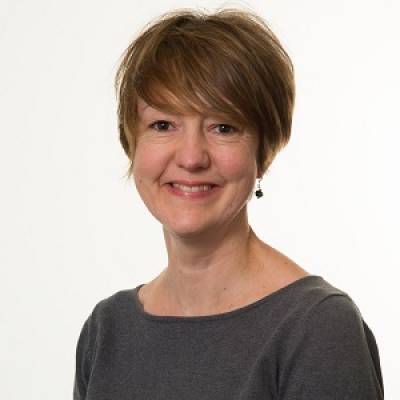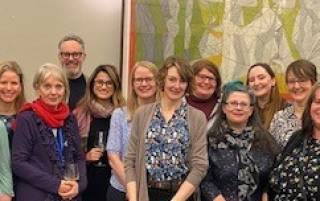This MSc is an accredited professional programme leading to qualification as a speech and language therapist (SLT).
This programme integrates theory with work-based clinical placements with adults and children with a wide range of communication and swallowing difficulties. The programme has an excellent reputation, and over 90% of graduates are working in SLT-related posts within six months of qualifying.
Speech and Language Therapy at UCL
Captions available on YouTube
Speech and Language Therapy at UCL: Employer Perspectives
Captions available on YouTube
Course Benefits
- The programme is delivered face-to-face through a combination of lectures, small group tutiorials, workshops, supervised clinical placements, practical classes and self-directed learning. The environment in the Division of Psychology and Language Sciences is stimulating, friendly and supportive. Collaborative peer-working features strongly throughout.
- You will learn to apply knowledge from a range of academic subjects to speech and language therapy practice. Innovative and authentic learning methods develop necessary skills such as team-working, assessment and therapy, self-evaluation.
- The research-based curriculum, and research project opportunities, promote strong research skills, enabling you to evaluate and add to the profession’s evidence-base. The programme will prepare you well for future leadership roles and ongoing engagement with applied and clinical research.
- Clinical placements start in the first term and carry on throughout the programme. The placements are closely linked to classroom learning. Weekly placements allow you to see changes in clients over a period of time and to develop your skills gradually over a longer period of time, supported by your university clinical tutorials and visiting tutors. Block placements are an opportunity to really focus on your clinical and professional skills development, supported by experienced SLTs and college tutors.
- The Research Excellence Framework, or REF, is the system for assessing the quality of research in UK higher education institutions. UCL is the top-ranked university in the UK for research power in Psychology, Psychiatry and Neuroscience according to the REF 2021.
Why Study Speech and Language Therapy?
Speech and Language Therapy Careers
Speech and Language Therapy is a rewarding career and there are a number of areas that SLTs work in.
Most graduates from this programme go on to work as a speech and language therapist/pathologist with adults and children who have a range of communication and swallowing difficulties. These can include people with autism spectrum disorder, dementia, specific language impairment, learning difficulties or people who have had strokes or head injuries. You can work in healthcare or educational settings, for example in hospitals, specialist centres, the community, schools or justice settings.
Our graduates are well placed to contribute to the evidence base for the profession through further research and to fast track into specialist or leadership positions.
Our strong links with employers ensure that you get up-to-date and relevant information to support you in preparing for and securing your first job. Excellent university-based learning and the wide range and number of high-quality clinical placements also puts our graduates at an advantage. As a result many of our students are offered jobs very soon after completing the course.
Graduates from our programme are highly regarded by employers (see testimonials) with over 90% working as a speech and language therapist within six months of qualifying.
Our course equips you with transferable skills relevant to employability, such as: interpersonal and communication skills, oral and written presentation skills, collaboration and team working, critical evaluation, integration and synthesis of information, report writing, behaviour management and change.
Graduate Stories
Anna Sowerbutts: MSc GraduateCaptions available on YouTube | Jonathan Bose: MSc GraduateCaptions available on YouTube |
Our Speech and Language Therapy Research
UCL is at the forefront of international research and teaching in language, mind and behaviour, including applied clinical research in speech and language therapy. Find out about our research which includes core issues in the in acquired communication disorder, cognitive neuroscience of language, development of language and cognition in typical and atypical populations, speech and swallowing, typical and atypical interaction.
Fitness to Practise
As professional practitioners working with the public, students studying the MSc Speech and Language Therapy need to be 'Fit to Practise'. This encompasses fitness to attend teaching and learn as you will be learning knowledge and skills to enable you to be a competent practitioner. Prior to entry trainees will be subject to screening proceedures through UCL Workplace Health and throught the Criminal Records Bureau Disclosure and Barring Service (DBS). We strongly encourage offer holders to let us know about any health conditions or specific learning disabilities e.g. dyslexia, anxiety disorders, conditions affecting mobility or giving rise to fatigue, before the start of the course so that reasonable adjustments can be discussed to aid successful completion of the course. Information provided will be stored on UCL managed services and access will be restricted to only those persons who require it. Please see the Privacy Notice for further details
 Close
Close



